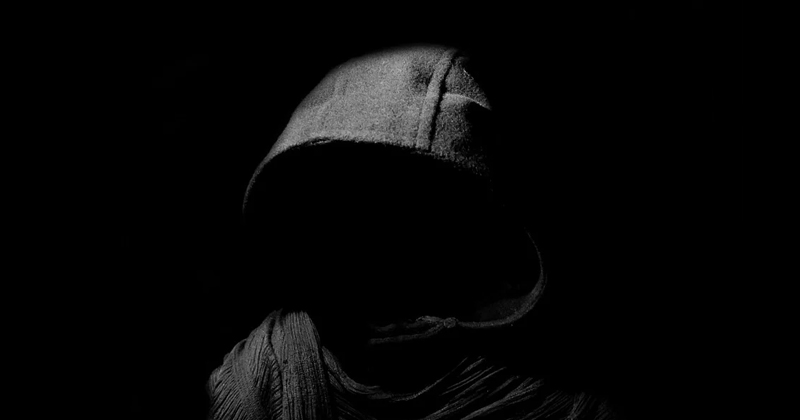The circulation breaks down, breathing stops, the heart stops beating and the life comes to an end. What is going through our heads in these last moments cannot be said with certainty. Let’s find out what happens when we die.

What happens after death, has always been a concern to mankind. Many people who were already clinically dead but could be resuscitated have described the impressions they had at this critical moment. It is striking that these near-death experiences are very similar. As a result, many of the patients felt light and painless or even euphoric, and some even felt that they had left their bodies.
Others report that they went through a tunnel, at the end of which there was a bright light. Some saw scenes from their lives rushing by like in a movie.
What Happens When A Person Dies
Scientists at New York University have researched what happens after death has occurred and whether consciousness continues to work after death. They examined patients who had died of a sudden cardiac arrest for over a decade. In contrast to a heart attack, the heart stops beating immediately.
The process in which all reflexes die, such as the gag reflex or pupil reflex, can continue for hours after the heart has stopped beating. just like brain cells are gradually dying. It means that consciousness is still working when we are actually dead. The body is dead from the mind. If there have been unsuccessful rescue measures, the little bit of blood that has reached the brain can slow down cell death.
Dying Is A Process – What Happens When We Die

Dying is therefore not an abrupt end, but a process in which the body goes through different phases. As the heart stops beating, the blood supply to the organs breaks down. It means that the body’s cells no longer receive oxygen, nutrients, or sugar molecules. The organs begin to die one after the other.
The brain plays a very special role in this process. To put it simply, our thinking apparatus needs large amounts of oxygen and sugar molecules to work properly. Its metabolic activity per volume is around ten times higher than that of the rest of the body, and with strong brain activity, the need for oxygen and sugar increases even further.
The cerebral cortex as the seat of consciousness requires the greatest amount of energy. When the heart stops pumping blood through the body and the supply to the brain breaks down, the cerebral cortex is affected first. This can lead to changes in consciousness, hallucinations, or sensory failures and ultimately to loss of consciousness.
Suggested Read: Why Don’t We Find Aliens? Where are they?
Undersupply Causes Hallucinations
The consequences for the individual areas of the brain on the cerebral cortex are serious. The parietal lobe is responsible for locating our body in space and for experiencing a close connection between I and the body. In the event of an injury or disorder in this cerebral region, our self-perception begins to waver, for example, a feeling of floating or even an out-of-body impression.
Undersupply of oxygen to the lower and inner temporal lobe can also lead to unreal sensations. The patient suddenly sees pictures, hears noises or even music, or feels euphoric.
Near-Death Experiences Can Be Explained Neurologically

Our memory is also stored in the cerebral cortex. The hippocampus is responsible for storing and retrieving the impressions of memories and it is particularly sensitive to a lack of oxygen. A malfunction can result in a huge amount of memory images being released. This flood of images can then be perceived as a kind of film of your own life.
The lack of oxygen in the brain can also lead to inhibition in signal transmission. Sensory impressions can no longer be processed correctly.
The uncontrolled signals of the visual cells are interpreted by the brain as a white spot, and since the cells concentrate towards the center of the field of vision after the failure of eye movements, a white circle can be seen, which becomes increasingly lighter in the middle. This explains the perception of the tunnel in some near-death patients.
Cerebral Cortex Dies Quickly – What Happens When We Die
Patients who were considered dead and resuscitated were able to describe exactly what had happened around them. They describe how doctors and nurses work. They describe complete conversations and are clear about visual things that they otherwise could not have known.
How you interpret the experiences of near-death patients is up to you. However, neurobiological knowledge of the brain’s malfunctions in oxygen deficiency shows that the brain can play a trick on us in the last moments of our lives.
Then Doctors Declare Someone Dead
Ultimately, dying is an individual process, the time frame varies from person to person. But when the heart finally stops, death comes fairly quickly. The brain’s oxygen reserves are minimal. Irreparable damage occurs after just a few minutes and the cerebral cortex begins to die.
Suggested Read: Near Death Experiences and Their Reality
Finally, consciousness goes out. If the breathing and the subconscious reflexes gradually drop out, which has to be checked in a last standardized examination, the doctors declare the people dead. This is what happens when we die.


